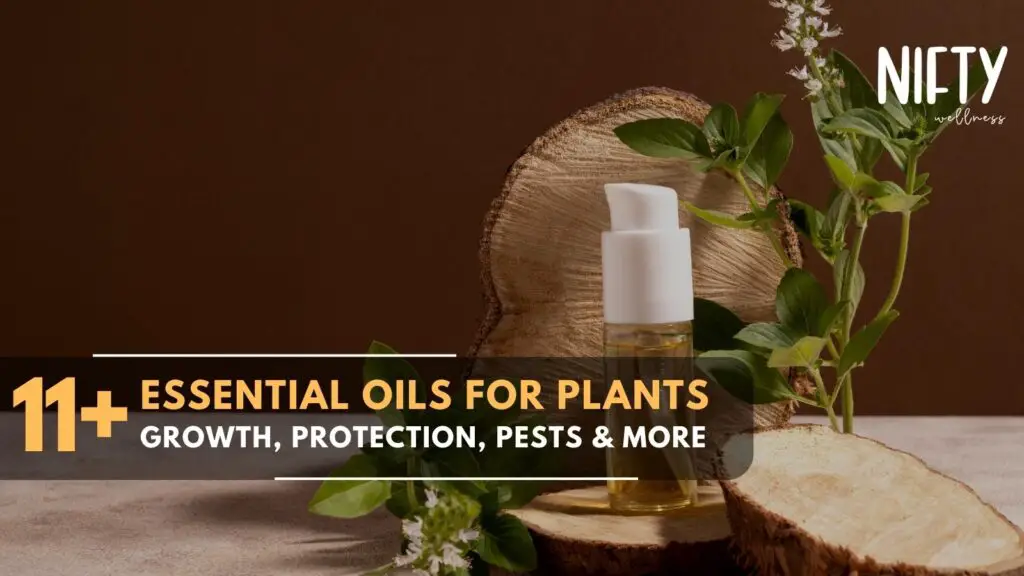We probably don’t need to remind you what a plant is, but just in case you need a refresher: Plants are living things that grow in the water or on land.
They can survive in nearly every type of climate here on Earth, from dry, arid deserts to tropical rainforests to bustling modern-day cities. There are over 300,000 different types of plant species around the world (with more likely to be discovered).
Plants can be divided into two general groups: flowering plants and non-flowering plants. Flowering plants include most types of trees and flowers like orchids and roses. Non-flowering plants include mosses and ferns.
All plants make their own food through a process called photosynthesis, where they take in the energy from the sunlight and convert it into their food source.
Houseplants are becoming increasingly more popular as people of all ages and backgrounds want to enjoy a sense of greenery in their homes, start a new hobby, learn to care for something outside of themselves, purify their home’s air, and grow their own food.
However, some people (especially first-time plant owners) may need some guidance when learning to care for their plants. And in this post, we’ll give you the ins-and-outs of using essential oils to care for your plants.
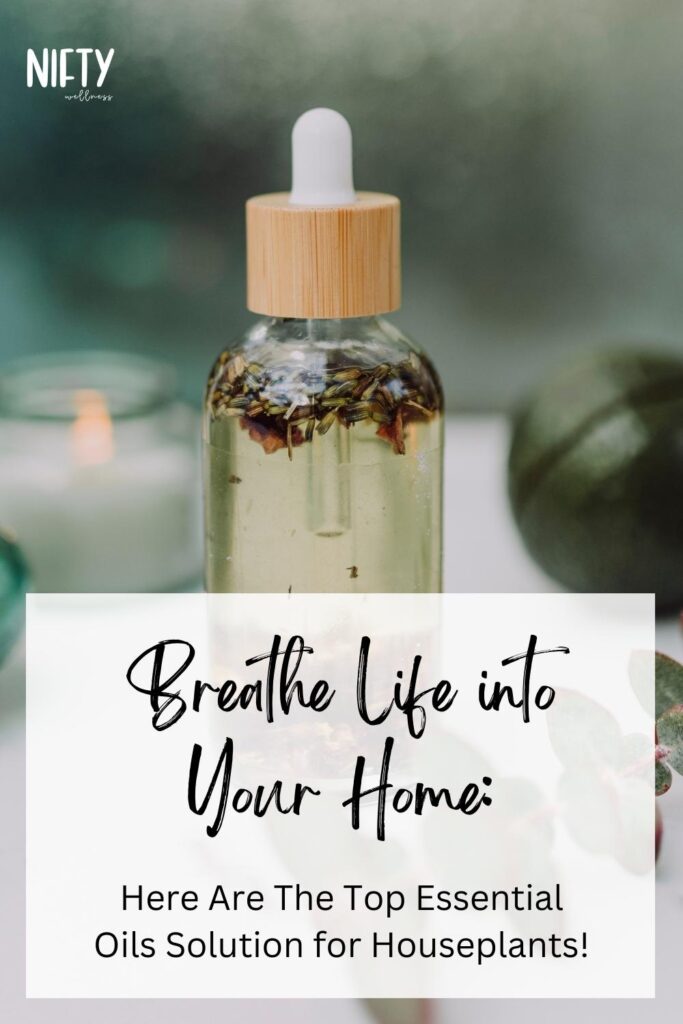
(Check out the health benefits of sourwood honey – in a new tab.)
Do Essential Oils Help Plants?
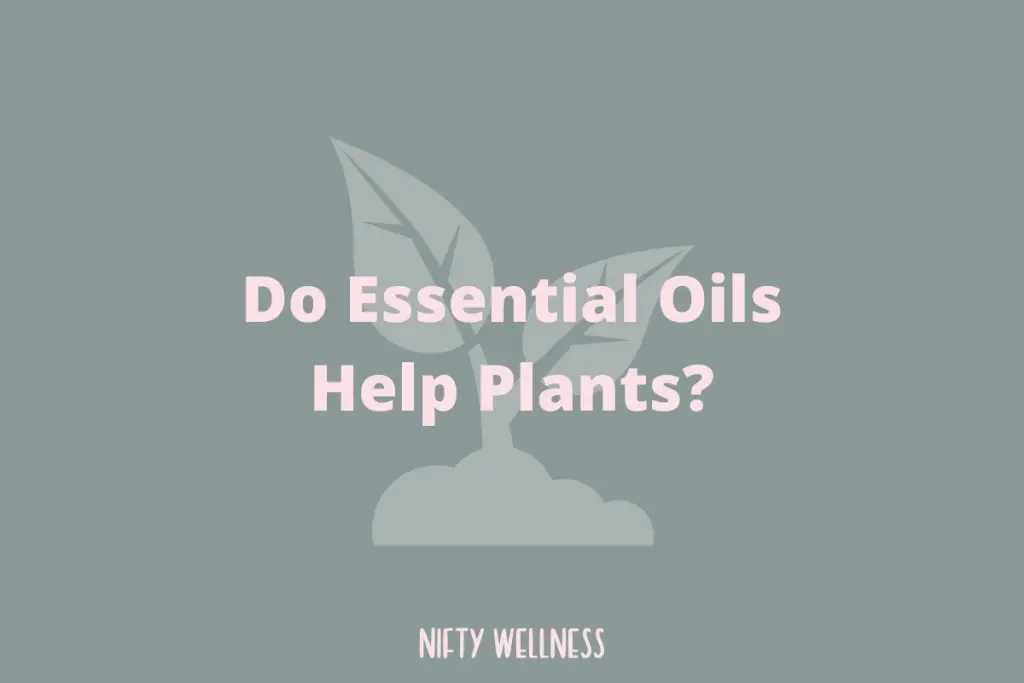
Given that essential oils have proven so beneficial to us as humans, you may be wondering if our fellow green friends can experience benefits from essential oils as well.
The good news is that, yes, essential oils can be used on plants, and they do have benefits.
What Essential Oils Do For Plants
Essential oils can be used to help plants in several different ways.
For example, certain oils and oil blends can be used as natural insecticides and pesticides, protecting the plants from harmful insects, snails, slugs, and other vermin that could wreak havoc on your plants, herbs, flowers, fruits and veggies, or garden patch.
What Essential Oils Don’t Do For Plants
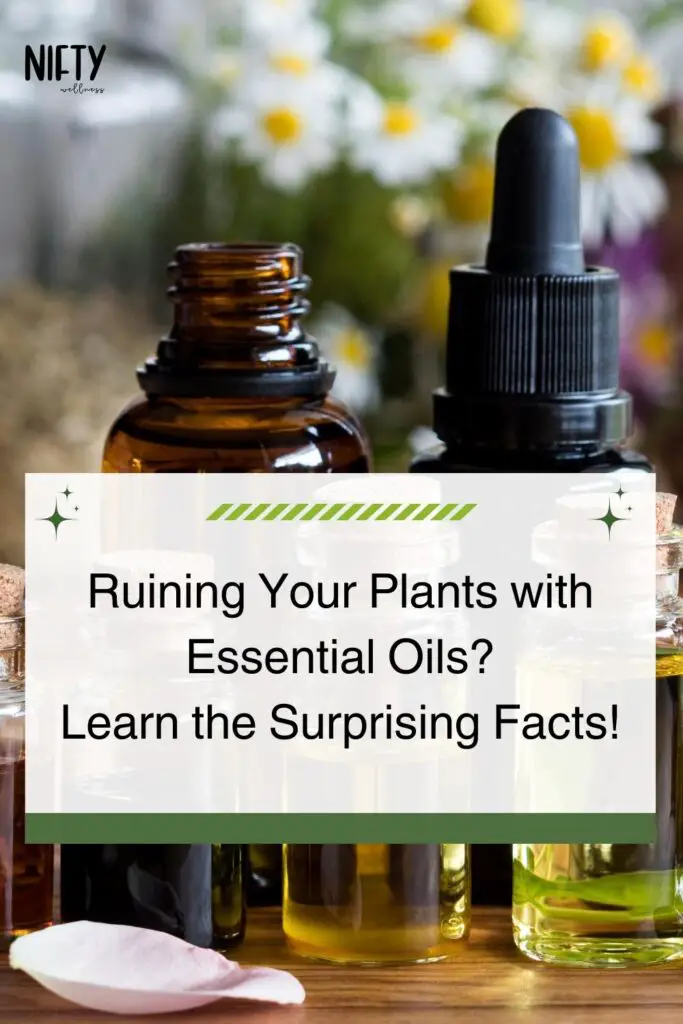
Though essential oils are incredibly helpful for naturally protecting your plants, they do not provide nutritional value to the plants in the same way that a plant food would.
While essential oils can be a valuable tool in your plant care arsenal, they cannot replace the essential nutrients that plants require for their healthy development.
Are Essential Oils Safe For Plants?
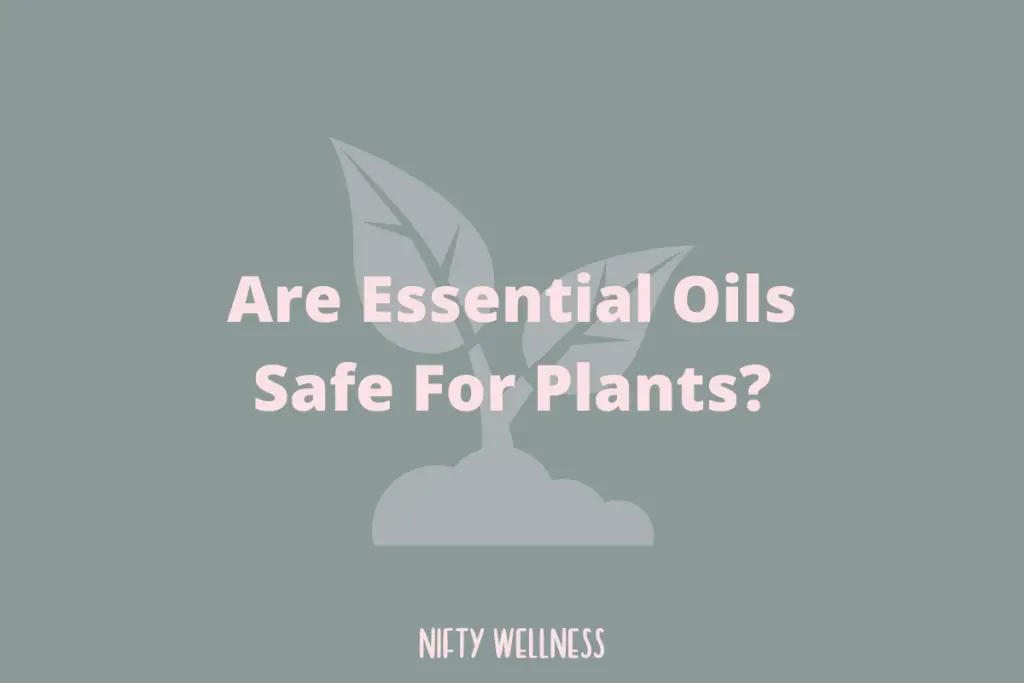
Essential oils are completely safe for plants, people, and the environment alike.
Essential oils make a fantastic alternative to chemical-filled pesticides and insecticides on the market that are not only harmful to your health, but leech into the soil affecting the groundwater and have lasting environmental effects.
To prevent your plant leaves from burning (due to the interaction between the sun and the essential oil), do not spray in harsh, direct sunlight. For best results, spray in the early morning or evening.
Best Essential Oils For Indoor Plants
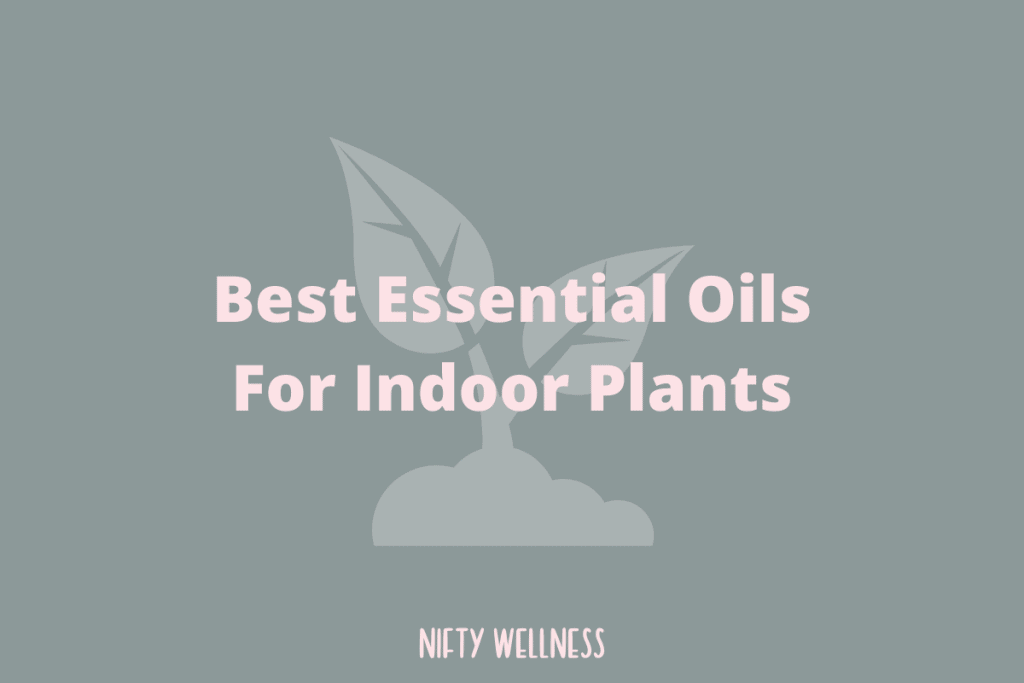
Indoor plants differ from garden plants in their environment and what they need. You can use essential oils for indoor plants to keep pests away and clean the plant’s leaves. These oils not only contribute to a healthier indoor plant environment but also add a pleasant aroma to your living spaces.
Thieves
Thieves essential oil is a popular blend of oils that plant owners use to clean the dust off their plants’ leaves, protect against the development of mold, and keep pests away. This oil is a mixture of clove, lemon, cinnamon, eucalyptus, and rosemary.
It can be bought pre-made, or you can make your own by combining 40 drops of clove, 35 drops of lemon, 20 drops of cinnamon, 15 drops of eucalyptus, and ten drops of rosemary.
How to Use: Fill a small spray bottle with distilled water and add enough thieves oil to slightly color the water. Spray directly onto leaves and wipe clean with a microfiber towel.
Thyme
Thyme essential oil is a wonderful insect repellent as it contains insect-fighting substances known as monoterpenes. These compounds make thyme an especially effective oil to use against house flies and insects. Using thyme oil in a homemade insect repellent spray can help keep your surroundings bug-free.
How to Use: To create an insect-repelling thyme spray, mix 1 part thyme essential oil with ten parts witch hazel, and spray on plants or insects directly. This natural solution can be an effective way to keep house flies and other insects at bay and safeguard your greenery.
Rosemary
Rosemary essential oil is a great fly, flea, mosquito, and cat repellent that can be used both indoors and outdoors. Rosemary essential oil serves as a versatile and natural repellent against flies, fleas, mosquitoes, and even pesky cats. Its pleasant aroma makes it a suitable choice for both indoor and outdoor use. This multipurpose oil not only helps keep insects at bay but also adds a delightful fragrance to your living spaces.
How to use: Dilute 20 drops of rosemary with every 100 milliliters of distilled water and spray directly on plants.
Pamper your skin with the nourishing elixirs that include natural ingredients designed to soothe, hydrate, and leave your skin irresistibly smooth by reading our latest blog “The Ultimate Guide To Oils For After Shaving: Achieve a Smooth and Nourished Skin“.
Best Essential Oils For Plant Pests
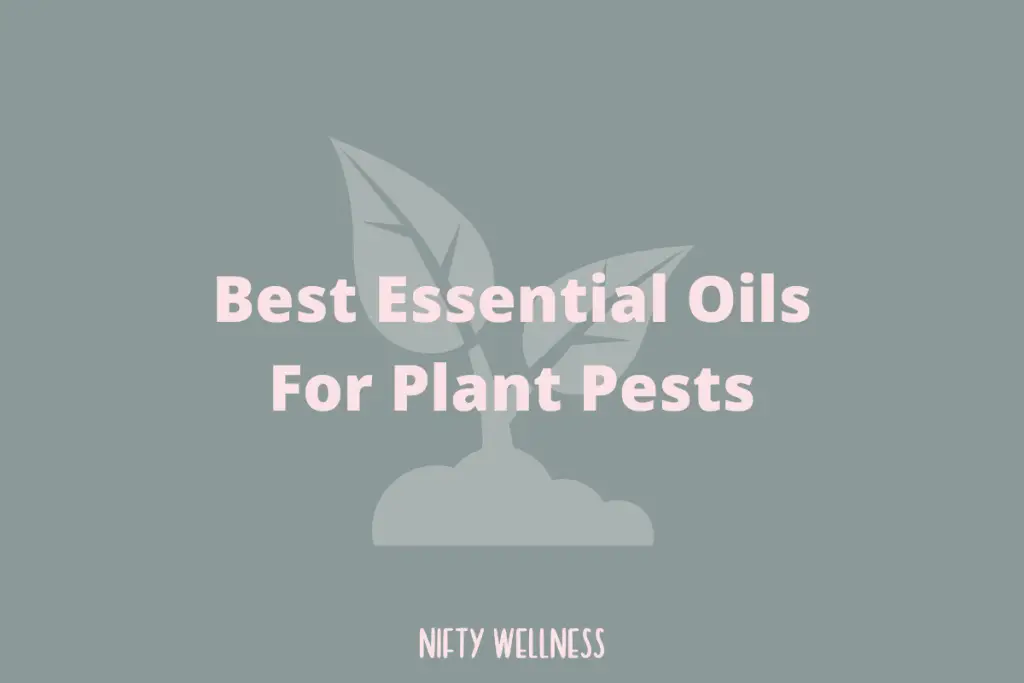
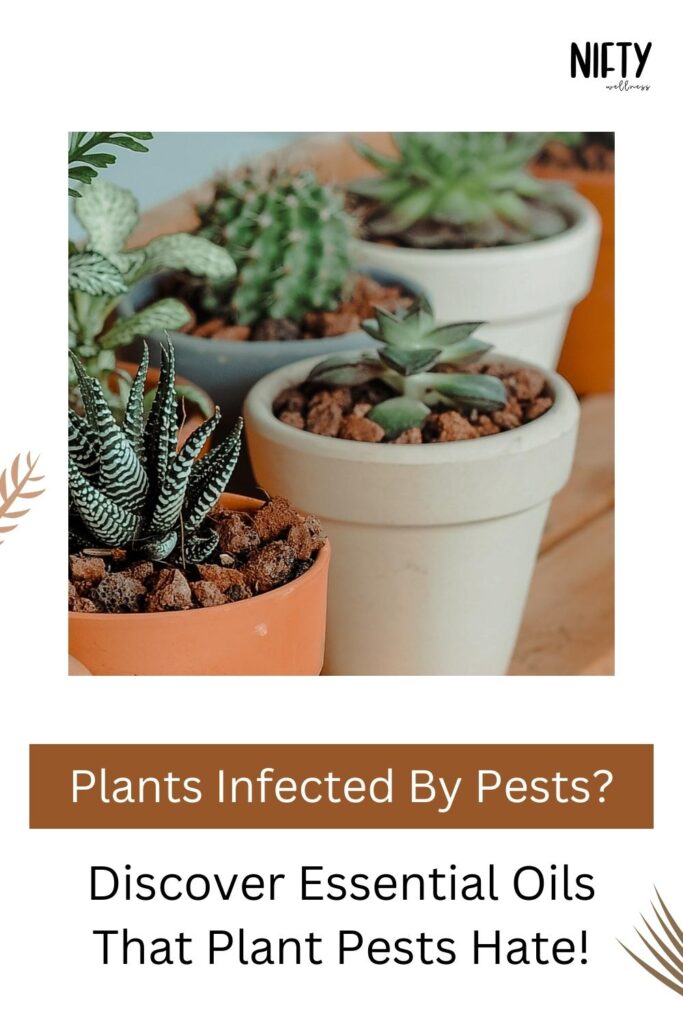
Perhaps the best use of essential oils for plants is their ability to deter insects, snails, slugs, and other vermin away from your plants.
The strong scent and compounds within essential oils work by interfering with the insect’s neurotransmitters, so they stay far away. And larger critters really don’t like the smells.
Citronella
Citronella is an oil that derives from the leaves and stems of lemongrass (thus, lemongrass is also an effective insect repellent).
It is the most popular and well-studied plant-based insect repellent that works by masking scents that are attractive to bugs.
How to Use: Combine equal parts distilled water and witch hazel. Dilute ten drops of citronella with every 100 milliliters of solution and spray directly on plants or nearby insects.
Eucalyptus
Like Citronella, Eucalyptus has a strong, disruptive scent that insects such as ticks, mosquitos, and midges stay away from. This natural repellent is a valuable addition to your pest control arsenal. Its versatile application extends to various outdoor activities, such as camping and picnics, where protection against pesky biters is essential.
How to Use: Combine equal parts distilled water and witch hazel. Dilute 20 drops of Eucalyptus with every 100 milliliters of solution and spray directly on plants or nearby insects. This powerful mixture can be applied directly to plants or nearby insects, providing effective protection against unwanted pests.
Peppermint
The fresh menthol scent of peppermint keeps critters like spiders, fleas, flies, lice, and ants far away. Peppermint can also be used to keep vermin (aka rats, mice, and squirrels) away from your outdoor plants and garden.
How to Use:
- Combine equal parts distilled water and witch hazel.
- Dilute 20 drops of peppermint with every 100 milliliters of solution and spray directly on plants or nearby insects.
- For vermin control, place a few drops of undiluted peppermint oil on a cotton ball and place it near your plants or on the perimeter of your garden.
Pine
Pine is a great all-around oil for protecting your garden from fleas, ticks, slugs, and snails. Pine essential oil is versatile when it comes to garden protection. Its crisp, woody scent acts as a natural deterrent for a variety of garden pests. It helps keep fleas, ticks, slugs, and snails at bay, ensuring your garden remains a thriving and pest-free space.
How to Use: Pine can be used on its own or combined with other oils like cedarwood, garlic, and hyssop to create a snail and slug repellent.
Dilute one teaspoon of pine essential oil (or essential oil blend) with 32 ounces of distilled water and spray directly on plants.
Lavender
Lavender is known to repel moths, ants, and other soft-bellied insects due to its strong scent. Even in its natural state, insects don’t like to hang around lavender.
How to Use: Combine equal parts distilled water and witch hazel. Dilute 20 drops of lavender with every 100 milliliters of solution and spray directly on plants or nearby insects. For indoor plants, lavender can also be diffused nearby.
Tea Tree
Due to its strong scent and natural antibacterial properties, tea tree is a great preventative essential oil that can keep harmful, parasitic insects such as fleas and ticks away. Tea tree oil can also be used to keep annoying flies away.
How to Use: Dilute 25 drops of rosemary with four ounces of distilled water and spray directly on plants. Ensure the undersides of leaves are covered for comprehensive protection against pests. This natural concoction will help keep harmful insects, like fleas, ticks, and flies, at bay, ensuring your plants thrive pest-free.
Cinnamon
While cinnamon essential oil may not be the best oil for deterring insects (though it is great for mosquitoes, mosquito eggs, and dust mites), it is fantastic at getting rid of weeds.
Research has shown cinnamon to have a high inhibition effect on seed germination of some of the most common weed species, such as pigweed and ryegrass.
How to Use:
- Fill a small spray bottle with distilled white vinegar and a squirt of castile or natural dish soap.
- Add 20 drops of cinnamon to the mixture.
- Shake and then spray directly onto weeds.
Best Essential Oils For Plant Fungus
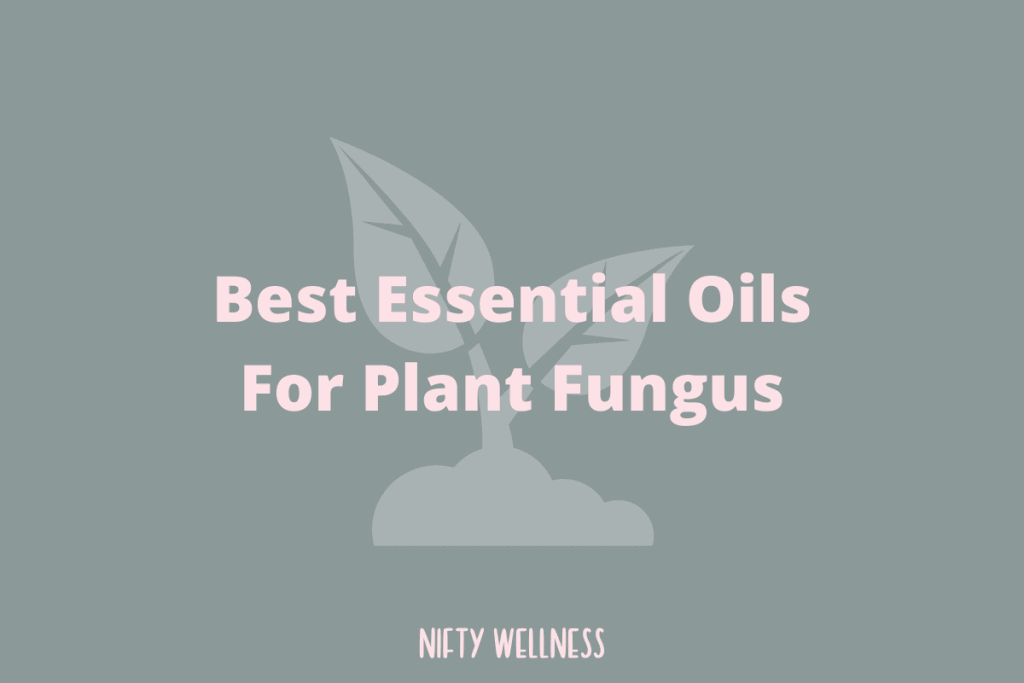
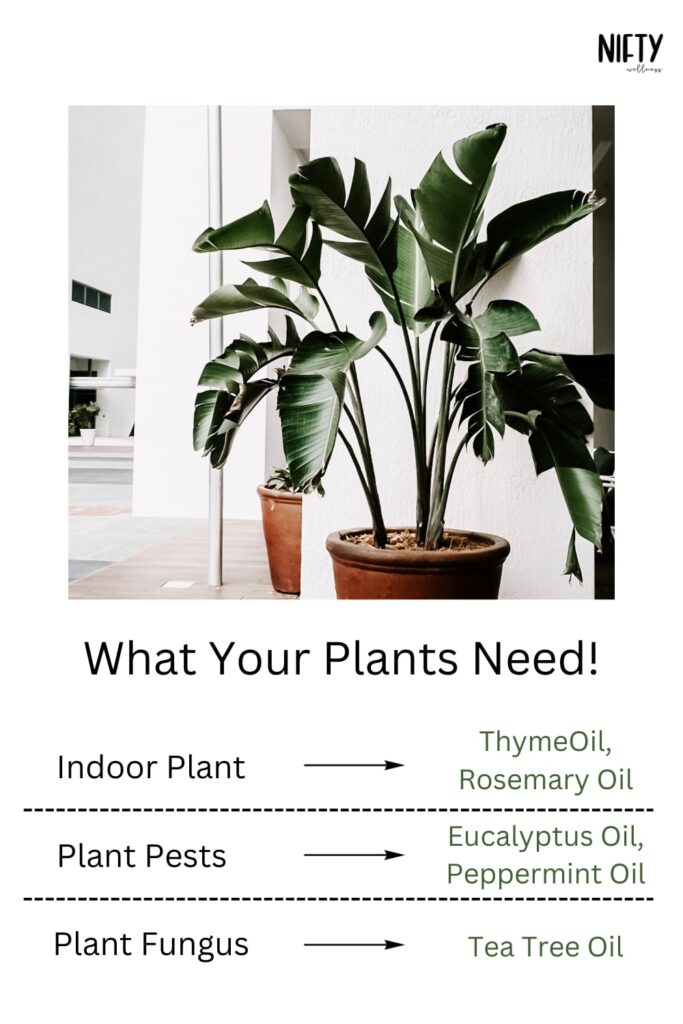
According to research conducted by Michigan State University, about 85% of all plant diseases are caused by fungal or fungal-like organisms.
Some symptoms of plant fungal disease can look like powdery mildew on the leaves, yellowing or rusting of the leaves, or certain brow spots on the leaves.
These fungal invasions can negatively affect the growth and lifespan of your plant, as the fungi can kill the plant cells, prohibit proper breathing, and steal nutrients from the plant.
Tea Tree
Tea tree oil is one of the most widely used oils when it comes to treating fungal plant infections due to its antibacterial, antimicrobial, and antifungal properties. Additionally, tea tree oil can help deter pests from infesting your plants.
How to Use: Combine 25 drops of tea tree oil with four ounces of distilled water. Spray directly onto plants and soil. Remember, leaves can be sensitive to this oil, so don’t over apply and avoid spraying in direct sunlight. However, exercise caution, as plant leaves can be sensitive to the oil. Avoid overapplication and refrain from spraying the solution directly in strong, direct sunlight to prevent any potential damage to your plants.
Best Essential Oils For Plant Growth
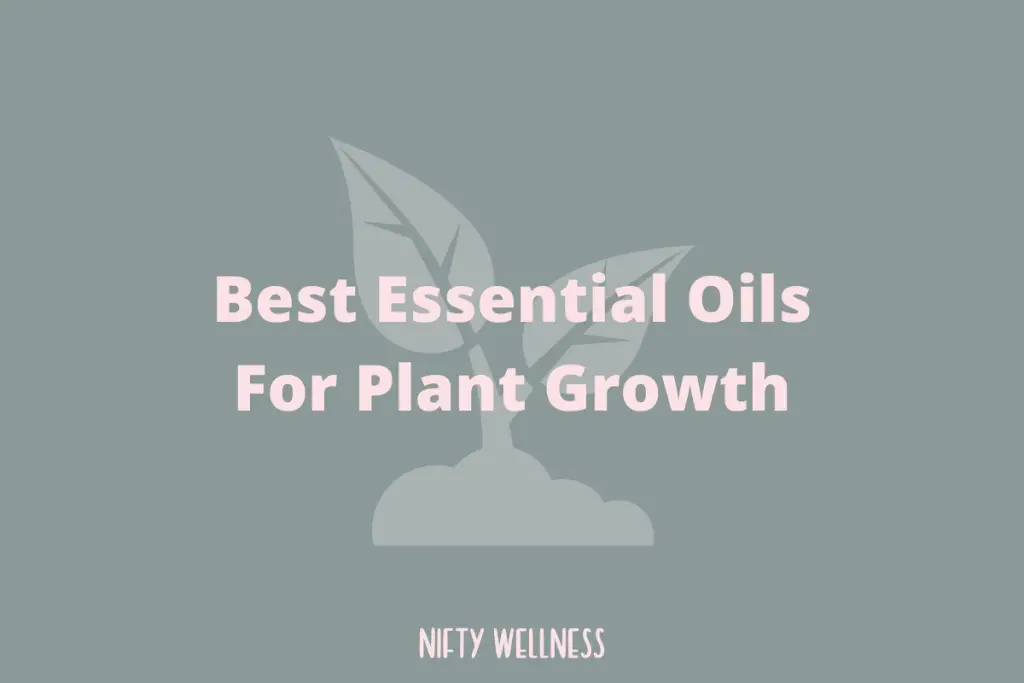
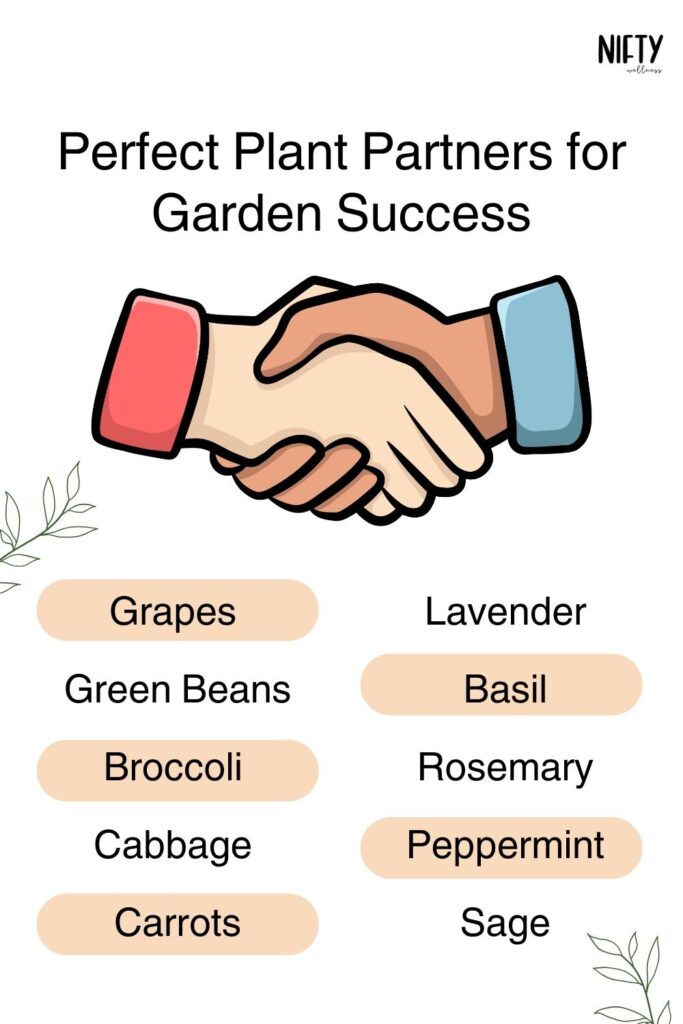
While essential oils cannot substitute plant food for promoting growth, plants and essential oils can work cohesively together as garden companions.
These specific pairings aid in the plant’s growth as the essential oils are often the extracted oils from the plant companions that like to grow near one another for nourishment and support.
- Apples — Lavender
- Asparagus — Basil
- Grapes — Hyssop, Lavender
- Green Beans — Basil, Lavender
- Broccoli — Basil, Thyme, Rosemary
- Cabbage — Clary Sage, Peppermint, Rosemary, Thyme
- Carrots — Sage
- Cauliflower — Rosemary, Sage
- Cucumbers — Sage
- Leeks — Celery, Hyssop
- Lettuce — Carrot
- Onion — Chamomile
- Peas — Geranium
- Peppers — Basil
- Potatoes — Basil, Sage
- Radishes — Radishes
- Tomatoes — Basil
How to Use: To utilize essential oils for plant growth, consider companion planting. Plant the specified companion plants together or near each other in your garden. You can also create a natural pest-repelling spray by mixing a few drops of the essential oil with water and spraying it on the plants. This fosters a healthier and more robust garden ecosystem.
Best Essential Oils For Promoting Pollination
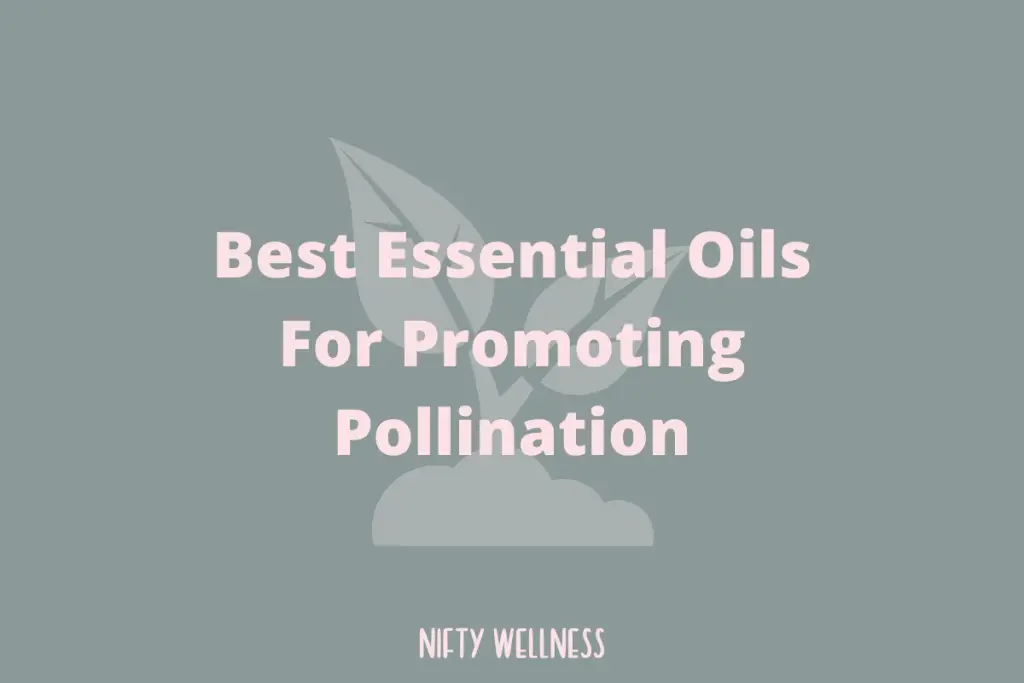
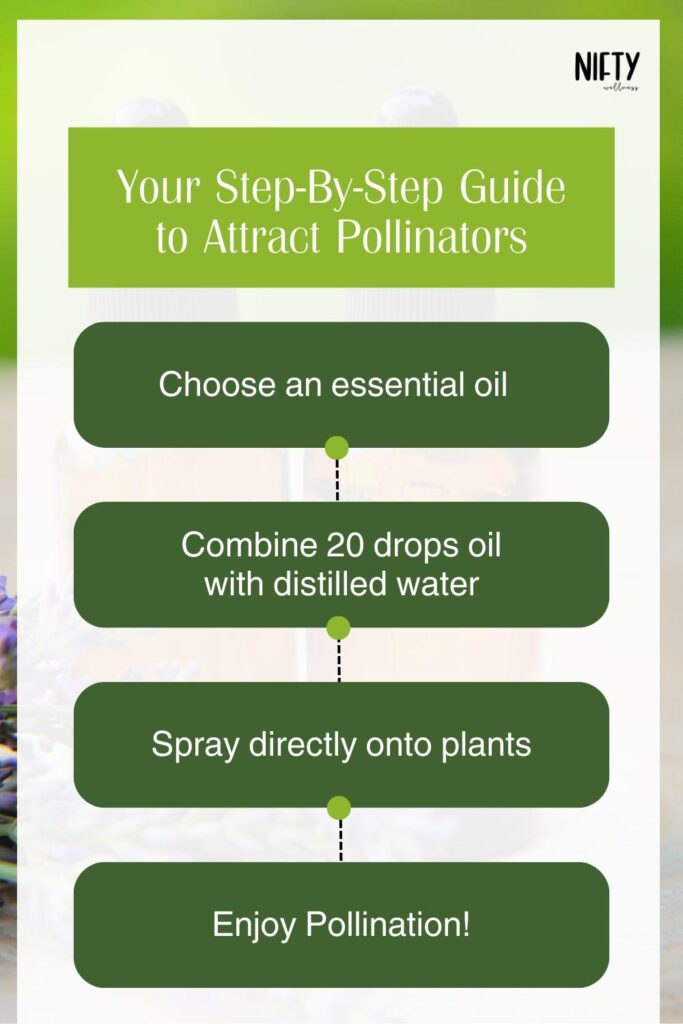
Essential oils can also be used to attract insects that help your plants and garden—think bees and butterflies—which will encourage and speed up pollination.
According to research, these oil compounds use chemical attractants to draw in specific pollinators.
Floral, herbal scents that are reminiscent of their original plant put off an attractive fragrance for pollinators. Some of these essential oils include:
- Orange
- Neroli
- Lavender
- Rosemary
- Sage
- Basil
- Helichrysum
- Fennel
- Catnip
- Marjoram
- Hyssop
How to Use: Combine 20 drops of one of these oils or a blend with four ounces of distilled water. Spray directly onto plants and soil.
Remember, leaves can be sensitive to too much oil, so don’t over apply and avoid spraying in direct sunlight. You can also place a few drops of oil onto a cotton ball and place it near the plant to attract pollinators.
Check out our latest blog Fragrance Oils vs Essential Oils: Which One is Right for You? Dive deep into the world of scents and explore their unique qualities.
Conclusion
In conclusion, essential oils offer a natural and holistic approach to plant care, providing a wide array of benefits for your beloved green companions. From protecting them against pests and deterring insects to fostering plant growth and promoting pollination, essential oils can be valuable allies in your gardening journey. What’s particularly appealing is that they offer these advantages without the harmful side effects of chemical pesticides, making them a safe and environmentally-friendly choice.
Whether you’re a seasoned gardener or just starting your journey with indoor houseplants, the inclusion of essential oils can enhance the well-being of your plants and your gardening experience. So, embrace the power of essential oils and watch your plants thrive in a healthier, happier environment.
Frequently Asked Questions
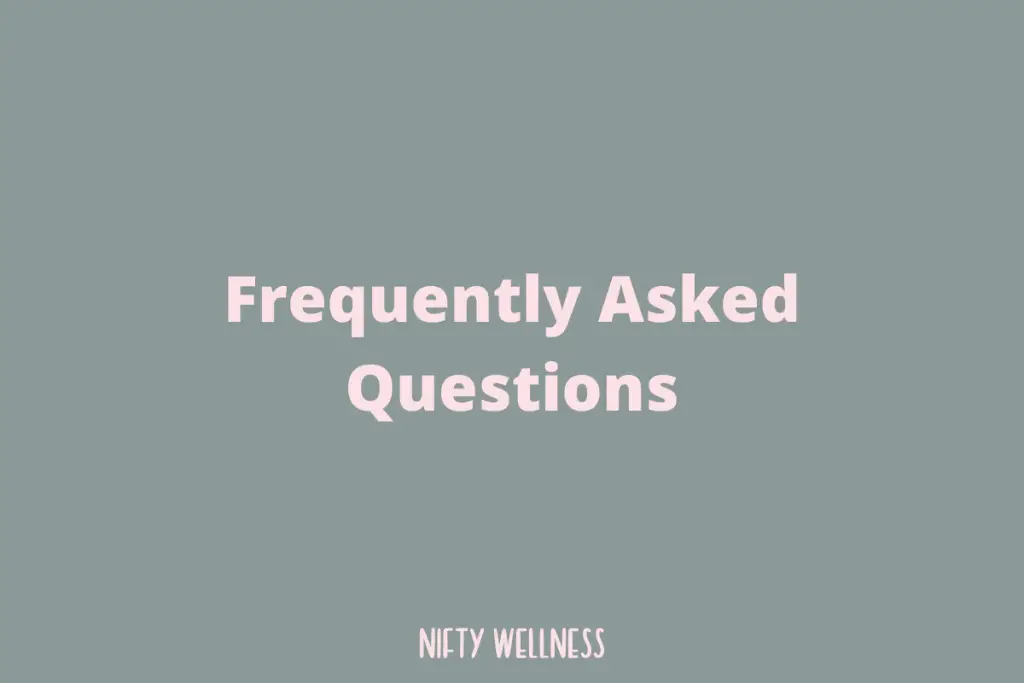
Can I Use Essential Oils on My Plants?
Yes. It is totally safe to use essential oils on your plants to protect them from mold, fungus, pests. Essential oils can also be diluted with water to clean dusty leaves.
Though your plants can benefit from essential oils, you should never use them neat as these highly concentrated compounds could cause damage if not properly diluted.
What Are The Best Essential Oils For Plants?
In general, the best essential oils for plants are those that keep pests away, such as tea tree, rosemary, peppermint, and thieves.
At the same time, other oils such as lavender and orange are excellent for attracting beneficial pollinators and deterring away other bugs.
Cinnamon and clove essential oil can also be used to repel harmful insects and prevent weeds from growing in and around your plants.
What Are The Best Essential Oils For Dying Plants?
While essential oils aren’t proven to help bring dying plants back to life, a few can be beneficial to use in times of need.
A blend of lemongrass, geranium, and frankincense oil may assist with plant growth and rejuvenation, especially in earlier stages. While oils like tea tree and thieves can ward off damaging fungal infections.
Are Essential Oils Harmful To Plants?
These natural, plant-derived extracts will not cause harm to your plants (as long as they are diluted) and are a much safer alternative to pesticides. In fact, these compounds can keep harmful weeds and bugs away from your plants.
Are There Essential Oils You Should Avoid Using On Your Plants?
There are not any currently known essential oils that have proven to be harmful to plants and that you should avoid using. However, certain oils have more benefits than others when it comes to caring for your plants.
Is There Anything I Should Know Before Using Essential Oils on My Plants?
Before experimenting with essential oils on your plants, the most important thing to know is that you should never put essential oils directly onto your plants.
Using an essential oil undiluted and straight off the bottle can be extremely damaging to the plant.
Unless you are only placing the oil onto a cotton ball or piece of cloth surrounding your plants, you should always dilute the essential oil with water before using it.
What Essential Oils Kill Bugs on Plants?
There are several essential oils that act as powerful insecticides. Some of these essential oils include thyme, rosemary, clove, peppermint, lemongrass, pine, thieves, and more.
How Do I Use Essential Oils in My Garden?
There are several ways to use essential oils in your garden. Perhaps the easiest and most popular way is to create a homemade essential oil spray by diluting the oil or oils with water or other ingredients like witch hazel and castile soap.
You can then spray the mixture onto plants and soil. To keep pests away from plants, you can also add a few drops of essential oil onto a cotton ball and place it around the perimeter of your garden or onto the soil of your plants.
What Essential Oil Is Best For Insect Repellent?
There are several types of essential oils that, due to their strong scent and insect-repelling compounds, are great at keeping the bugs away. Oils such as tea tree, citronella, lemongrass, lavender, peppermint, and eucalyptus are just a few.
Does Lemon Scent Repel Bugs?
While lemon essential oil isn’t known to be one of the best scents for repelling bugs, lemon eucalyptus oil has proven to be a highly effective mosquito repellent that can also repel bugs such as gnats, ants, moths, spiders, ticks, flies, fruit flies, and more.
Can Diffusing Essential Oils Kill Plants?
No, diffusing essential oils will not kill your plants as the diffusers do not put enough concentrated particles into the air to cause harm or affect your plants directly. Diffusing certain oils near your plants may actually be beneficial to them.
